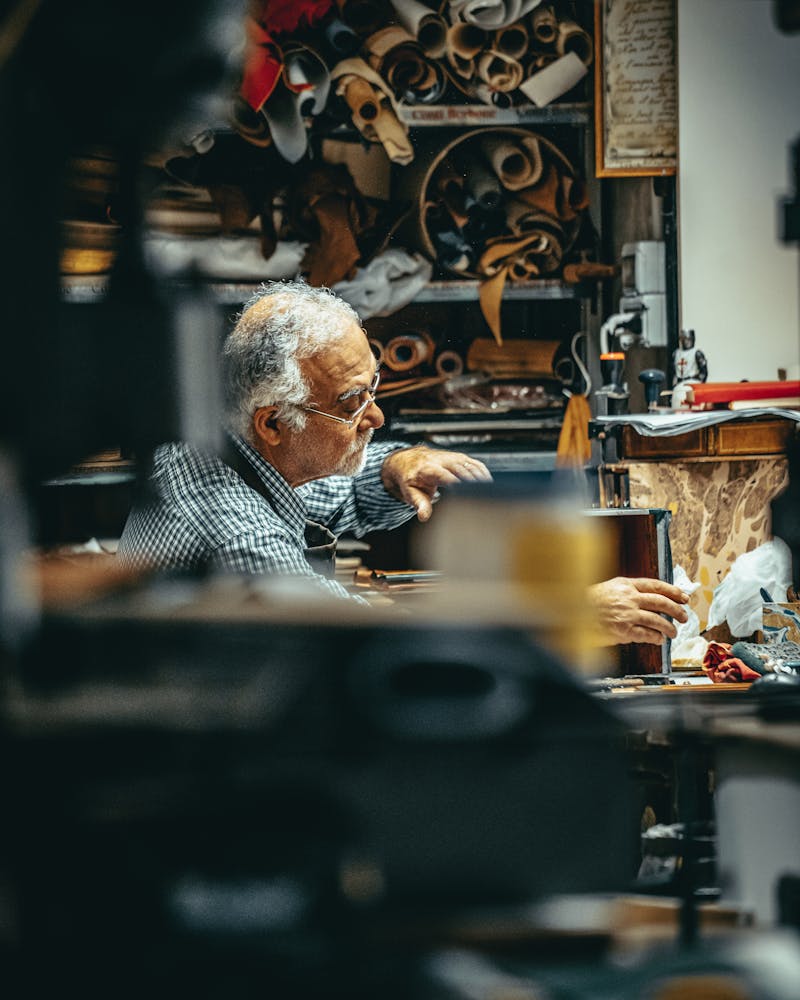
There’s an old saying that insists, “If it’s worth doing, it’s worth doing well.” This sentiment comes to us today from a time when quality was actually important, when craftsmanship was appreciated, and when people took pride in building and creating things that would last.
But with the rise of the Industrial Revolution, followed by the advent of the consumer-driven economy that we “enjoy” today, that ideal has been largely eclipsed. Now, our society often equates “living the good life” with accumulating more – more possessions, more options, and more convenience. Somewhere along the way, the pursuit of quality gave way to the pursuit of quantity.
Consider the modern mindset surrounding the concept of “more.” We see this shift in the aisles of big-box stores, where we feel a sense of victory when we can load up on massive amounts of goods at bargain prices. A pallet of frosted flakes from Costco, a cart piled high with disposable items – these purchases may make us feel as if we’re achieving more for less. But what is the hidden cost? These items may save money in the short term, but at what price to our health, our environment, and our quality of life?
The drive for “more” extends beyond grocery stores and discount retailers; it seeps into almost every corner of life, from the food we eat to the medical care we receive.
In healthcare, for example, technological advancements allow us to keep the human body “alive” for increasingly longer periods, yet this is not always accompanied by quality of life. Prolonging life at all costs can mean extended years filled with suffering, dependency, and often a loss of dignity. Medicine’s relentless focus on quantity over quality echoes society’s fixation on more and bigger, regardless of whether it ultimately brings well-being or fulfillment.
Mass production, with its assembly lines and endless output, was a boon in certain respects – it gave rise to a level of convenience and accessibility that prior generations could hardly imagine. But its pitfalls are equally clear. The shift to cheaply made goods erodes the very fabric of society by encouraging disposability. We replace things rather than repair them, and we accumulate rather than cherish. This focus on cheap, mass-produced items has promoted a throwaway culture where durability, meaning, and responsibility are increasingly hard to find.
A relentless consumer culture has also wreaked havoc on the environment. Goods that are cheaply made often have a short lifespan, leading to mountains of waste in landfills, the overuse of finite resources, and pollution that harms our air and water.
Fast fashion, for instance, pumps out enormous quantities of clothing at low prices, but these garments are often worn only a handful of times before being discarded. This cycle drives demand for more raw materials and more energy, all to satisfy an unsustainable appetite for meaningless quantity at the expense of quite meaningful quality. We even do this in relationships – throwing away marriages at the first sign of trouble and heading back to the shopping malls of love (tinder, etc.) to easily replace the carelessly discarded heart that we left behind.
To reverse these trends, we must reclaim the old wisdom: less, but better. Imagine a society where people took pride in owning fewer things, but those things were of excellent quality and built to last. Imagine a world where food was more carefully grown, prepared, and enjoyed, and where healthcare focused not just on survival but on enhancing well-being.
This is not an abstract or nostalgic dream – it is a choice we can make. By valuing quality over quantity, we could reduce waste, improve our health, and build a culture that values craftsmanship, sustainability, and mindful consumption.
This shift is not without challenges, of course. A society structured around mass consumerism cannot easily pivot to a model that values fewer, better things.
Businesses thrive on constant production and consumption, and a transition would require a fundamental change in both economic policy and social values. Yet, the current trajectory – this endless pursuit of “more” – is unsustainable. We are consuming our way to a point of diminishing returns, where the quality of our lives, our environment, and even our economy is under threat.
The good news is that change is still possible. The return to a culture that values quality need not mean sacrificing comfort or pleasure; instead, it means redefining those ideals. A simpler, more mindful life can be as rich and fulfilling as any life built on abundance. We can still enjoy the conveniences of modern living, but in a way that respects both ourselves and the world around us.
By choosing products that are built to last, by supporting sustainable practices, and by focusing on the quality of our experiences rather than the quantity of our possessions, we can shift towards a more meaningful and balanced way of living.
In the end, “living the good life” does not require excess, and “more” is not inherently better. What we truly seek – happiness, fulfillment, connection – cannot be bought in bulk or achieved through mass production. If it’s worth doing, it’s worth doing well. And if we want a world that can sustain future generations, it’s worth doing now.
Join us in making the world a better place. You’ll be glad that you did. Cheers friends.